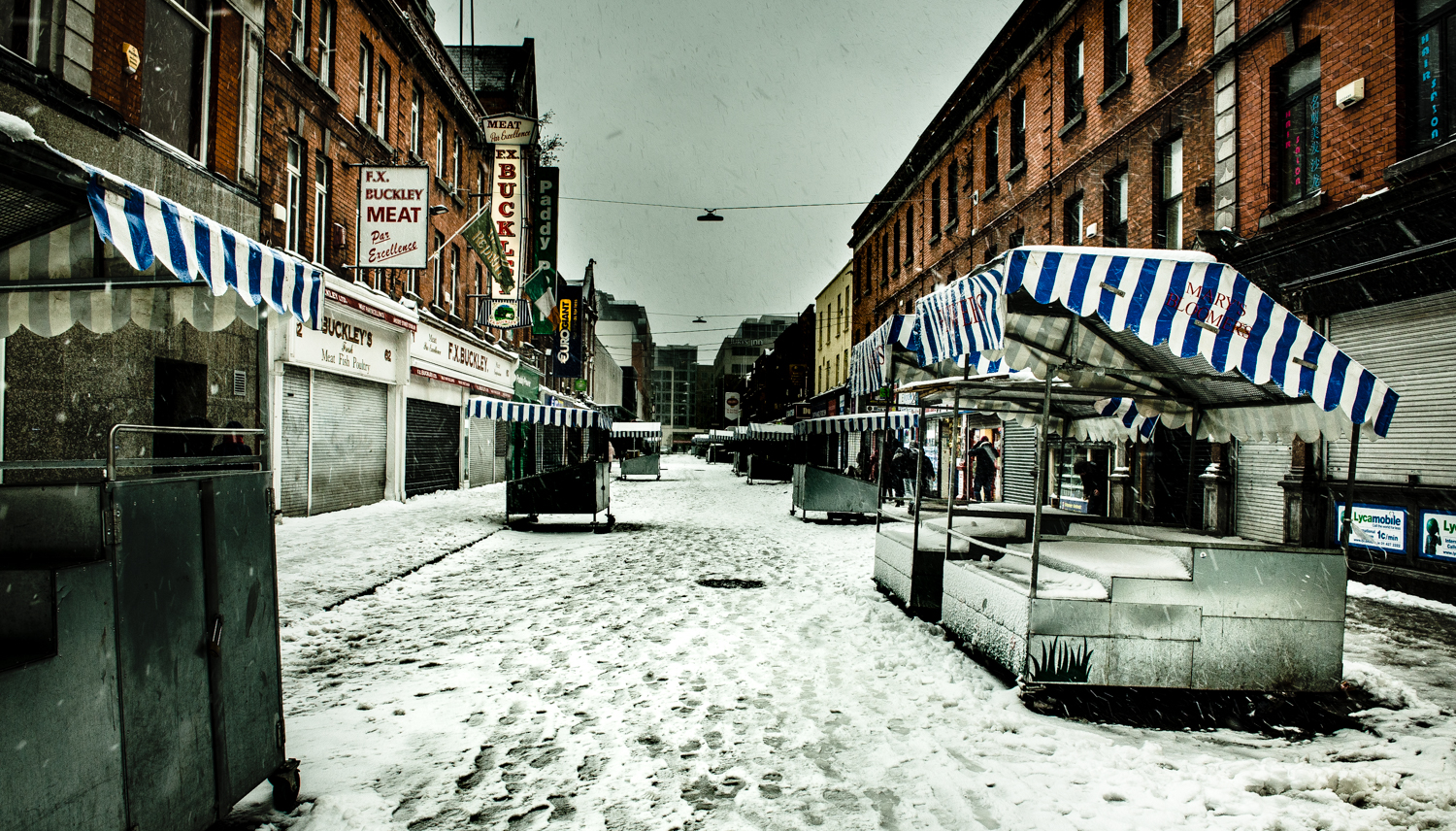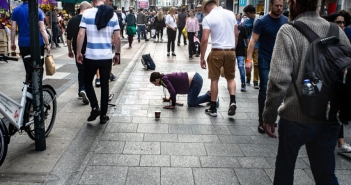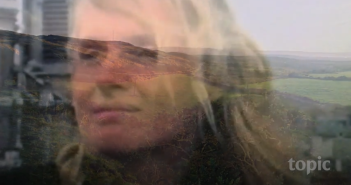The great Italo Calvino’s novel Invisible Cities imagines a conversation between the Mongolian emperor Kubla Khan and the legendary traveller Marco Polo. Kubla Khan asks Marco Polo to describe for him the great cities he has visited.
After a number of vivid and enthralling accounts it becomes clear that Marco Polo is confining himself to a description of his native Venice, as if the rest of the world counts for little, a view for which I have some sympathy.
Let us imagine another fictional conversation, set in contemporary Ireland, in which Taoiseach Leo Varadkar encounters a non-national – from Lithuania we’ll say – and asks her for a description of Dublin and its hinterland.
You will indulge this far-fetched conceit I hope, dear reader, of our imperator deigning to converse with a migrant of modest means.
Suave Leo will be confident– ‘our GDP growth is off the charts’ he assures himself – in a favourable verdict on his achievements as Taoiseach, and the state of the country after almost a decade of Fine Gael in power.
‘She will surely recognise this as ‘the best little country in the world to do business in’, with near full employment; an economic powerhouse, like Venice in its day – they might have built St. Mark’s and the gondolas, but we have the Dundrum Shopping Centure and the M50; a land of céad míle fáilte – as long as you are an ‘an ex-pat’ with a decent credit line; of milk and honey, so much dairy in fact that we are the second leading exporter of powder milk to Chinese mothers, who can now work longer hours to produce the consumer goods we don’t need; of comely maidens at cross purposes. The boom is getting boomier, again!’
Using the structure of Calvino’s book let us imagine her response, chapter by chapter.
Chapter 1
She concedes Ireland has given her employment:
‘Which requires me to work long, often anti-social, hours, though I am grateful for it, as others haven’t been so lucky and ended up on the street, or involved in organised crime. But I have to say that since the economic crisis I have encountered significant hostility from native Irish, even though I speak perfect English – perfect you understand – albeit with an accent.’
‘Taoiseach I can’t help feeling I have had to work significantly harder than the younger generation of wealthy Irish, who don’t recognise my achievements. I am well educated but my academic qualifications are often disparaged. There is a Little Islander mentality, though I guess you might find the same attitudes if you came to work in my ex-Soviet republic.’
‘We Lithuanians are also a small nation, like your own Taoiseach’, she says, pausing to reflect that he might empathise with her plight, given his mixed-race background.
‘Currently I live in a satellite town of Dublin, where I work and have studied in the past. I find the environment harsh and uncomfortable, and public transport pathetic, which forces most people into their cars.’
‘Many Irish people I meet seem very nice, but this can be superficial, and I have been subjected to racist abuse for speaking Lithuanian with my friends on the bus.’
‘I have the impression the country is being run for the sake of a privileged few. I have found out quite a bit about your country Taoiseach, and it seems there are dynasties that run it, especially in politics where I see the same names cropping up again and again, just like the former Soviet officials who re-invented themselves as democratic politicians where I am from.’
‘I have also heard there are certain private schools in Dublin which most the top lawyers and businessmen attended, and now send their children to, and I think a lot politicians were educated in one of them too, including, if I am not mistaken, yourself. Do you work on behalf of these people or the wider community Mr Varadkar?’
Leo feigns a smile that looks more like a grimace – he’s hoping the conversation won’t go on much longer, but realises he can’t ignore the woman as someone might have their camera on him. He interjects, summoning all the charm that bewitched his party when Enda finally fell on his sword: ‘Look at me, I am half-Indian and gay. I made it the top, and so can you.’ But strangely he doesn’t look her in the eye when he speaks.
Chapter 2
The Lithuanian lady responds: ‘As I said Irish people are very friendly, but sometimes this masks a lack of emotional depth. They love to talk but prefer not to listen. They are highly sociable, but drink to excess. They fill their minds with absurd patriotism, and tell lachrymose tales of hardship and grievance. They give out, but generally do nothing. They are often obsessed with trivia, or with pop culture, and televised sport. Politics seems to be reduced to personalities rather than the issues.’
She continues, a steely determination entering her voice, aware that this will be her one opportunity to speak candidly to a person in power: ‘Politics, Taoiseach, is about the issues and nothing else. Irish politicians are economical with the truth, and often, frankly, lie. Compromise is not always possibly, and sometimes harsh words are required. Cover-ups of corruption are not conducive to a well-ordered society.’
‘More generally, it is difficult with such overt friendliness to work out when to take people seriously. In this context I have, as a young attractive woman, experienced numerous protestations of love from inadequate men, who only dare speak to me when they are drunk.’
At this stage Leo is getting exasperated at how ungrateful she is for all the country has given her. But he manages somehow to contain a rising disgust.
Chapter 3
She continues: ‘when people get to know you on a personal level they are nice and there is still a strong sense of community in the rural areas I have worked in – social supports and community among the older generation. But this is nowhere near as prevalent in Dublin, where I encounter greed, selfishness and casual disregard. Homelessness is rampant and, I am telling you, you would not want to get sick. The one medical emergency I experienced I had to wait for hours in A&E, and I felt the treatment was inadequate.’
‘I have now taken out private health insurance – as you advised young people to when you were Minister for Health – but even still I face queues, and that is the experience of other people I know in the same situation.’
‘And my experience with the private sector, especially the banks, is that people are not that competent, often downright rude, yet curiously patronizing.’
‘But really Leo the police are particularly rude and judgmental towards non-nationals. In my community I hear a lot of complaints about them. Some of their conduct seems to be legalized banditry, as corrupt as … any country on earth. Yet I read in the newspapers that your party does not have the will to deal with the institutional scandals, or train them properly. Frankly Leo they are in many respects as bad as the criminals they are supposed to police.’
Leo is now seething and on the point of flying off the handle. She is questioning the very essence of his Ireland, despite the opportunities it has given her. He turns accusatorial: ‘But we welcomed you, and you have lived here for over 10 years. Of course we are not perfect but which country is?’
Chapter 4
She responds: ‘It is true there is sufficient food to eat, but as for the standard of living, or quality of life, it doesn’t compare favourably with other countries, unless you are privileged. There is a glass ceiling on how far a non-national can climb in this country, and you Taoiseach are the exception that proves the rule.’
‘Non-EU migrants especially have had to endure victimisation, and the barbarities of Direct Provision. My humble abode in the sticks is far too small, and cost a ridiculous sum for negligible space, which eats into my meagre income. All around us people are being forced to live in ever-decreasing spaces. This is not conducive to emotional or intellectual wellbeing.’
She is becoming forceful again: ‘Even applying your capitalist logic: you cannot produce creative or productive people if they are forced to live in shoe boxes. People will want to leave. They will have had enough. Even if I wanted a family that would probably be impossible, which I find quite depressing.’
Leo, now astonished and increasingly irate at this candid and uniformly negative response, asks, with a surprising, but revealing, innocence: ‘well who is responsible for these mistakes?’
Chapter 5
‘Without naming names Taoiseach, I’ll offer you a biblical reference, which became an Italian film and a byword for corruption. Ireland is becoming ‘Sodom and Gomorrah’, or at least Gomorrah. No one has any confidence in many of the state institutions or private actors; there is a sense that the political class is corrupt and self-serving; dispensing patronage for favours and committing the sins of simony with Big Business and the professional classes. Our banking structure is a farce: why didn’t we just nationalize them like Iceland, which got out of its recession much sooner?’
‘I have to confess Taoiseach that I bought my apartment at the height of the boom, and now have difficulty making repayments. The bank won’t allow me to get back on a tracker mortgage, even though they promised to do so. The interest rates are crippling me. I want out.’
‘My friends who are renting are in an even worse plight, and are often randomly evicted by the purchasing power of Canadian and American vulture funds linked to Goldman Sachs. This is not right. Further, it seems to be a society where, if I may be so bold as to quote an Irishism: ‘it is not what you know, but who you know ’, that gets you ahead, which is not meritocratic.’
‘I am sorry to be so forward Taoiseach but governance here does not conform with that of a functioning European social democracy. I am hesitant to be so candid as my culture has imbued me with a formal politesse and deference. I am a decent and civilized person. But Ireland has the resources to become a genuine social democracy, but can’t be as long as you misapply and mismanage your revenue.’
‘Also the endless diet of violence both real, and magnified by the press, is undermining my quality of life. As a woman I am alarmed the stories of sexual assaults I hear in the press. Whether real or exaggerated, I do not feel completely safe walking the streets of Dublin at night.
‘Newspapers trivialise and sensationalise, and do not report the truth at times. Violence has unfortunately become part of the entertainment industry, but increasingly truth and fiction are difficult to disentangle.’
But Leo, a crackle of emotion in his voice, at last gets a word in: ‘surely the youthful energy here can make this society work?’
Chapter 6
She replies: ‘Ah yes the youth. The youth want to leave Leo for a better quality of life. Many older people too. The brain drain is continuing. Even young native Irish in creative fields don’t have career opportunities, and prefer not to work for multinational companies. They don’t want to live in a satellite town in order to live independently of their parents. The environment you live in impacts significantly on your self-esteem Taoiseach.’
Some of the younger generation in Ireland are doing well of course, and there is a culture of entitlement, both boorish and materialistic. Culture is commodified, and it is almost impossible for independent artists to live here with the inflated cost of living. Irish people don’t seem to read the ‘big books’ that I grew up attached to. Ignorance seems to breed a culture of compliance. Of course this is what happens when survival is the main priority. The desperation for money and pervasive avarice have coarsened social interactions. You have lost God and embraced Mammon. It is not that I am particularly religious, in fact I am an atheist, and I too want enough money for a decent standard of living, but this society seems rudderless, and unprincipled.’
This continues on for many more chapters.
Endlessly critical, endlessly precise, endlessly judgmental. Lucid, and scathing. By the end, Leo’s world is falling apart and he implores his vengeful demon to offer a dose of optimism.
Chapter 7
‘The countryside is beautiful’, she responds, ‘in particular the Atlantic coastline. Connemara is one of the most glorious places I have ever set eyes on. I often try to hike in Wicklow, which is nearly as wonderful as the West, but much of it is inaccessible without a car, as the bus services is almost non-existent. An American friend of mine also says that Ireland is a good place to play golf. And at times in bars and socializing ‘the craic’, as they say, is ‘mighty’. But Leo not even the Irish can live on craic alone, which has its disturbing shadow.’
She then stops abruptly and bids adieu. She has to get up early in the morning for a job interview in London, assuming, post-Brexit, she can get a visa. She is increasingly conscious of how perilous being a migrant is, and may be, throughout Europe in the future.
Her parting shot is that it is not just Ireland, but Europe and the rest of the world, that is increasingly hostile to migrants. She may be confronting a future of further displacement.
Leo sighs bemusedly – remaining convinced of his beneficence. He will consider carefully what she has had to say. He will make Ireland better for those willing to work. But soon the failings she has pointed to slip his distracted mind, and as the problems multiply, he sees no obvious solutions: ‘Let’s just keep it business as usual’ he says to himself.




